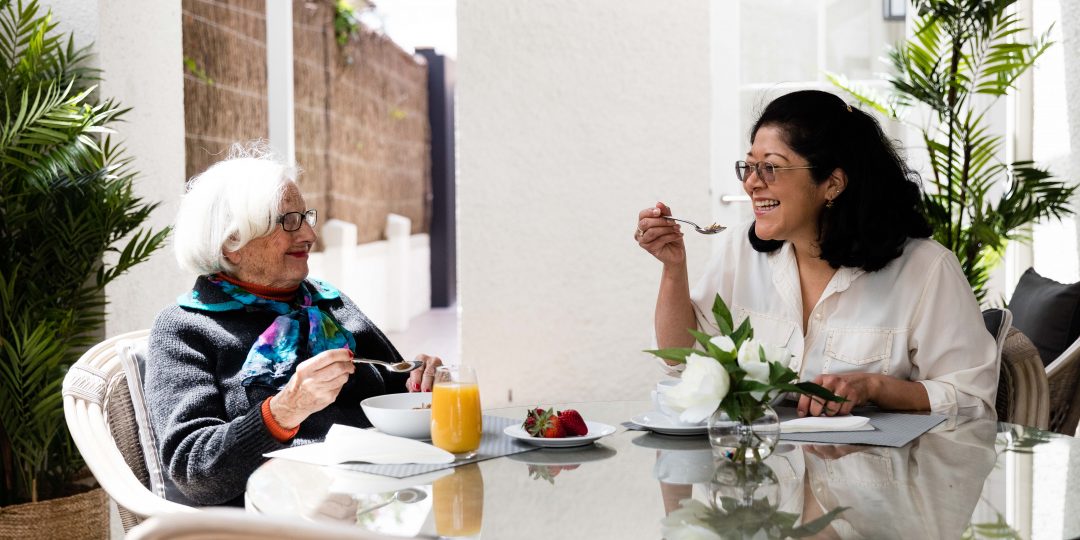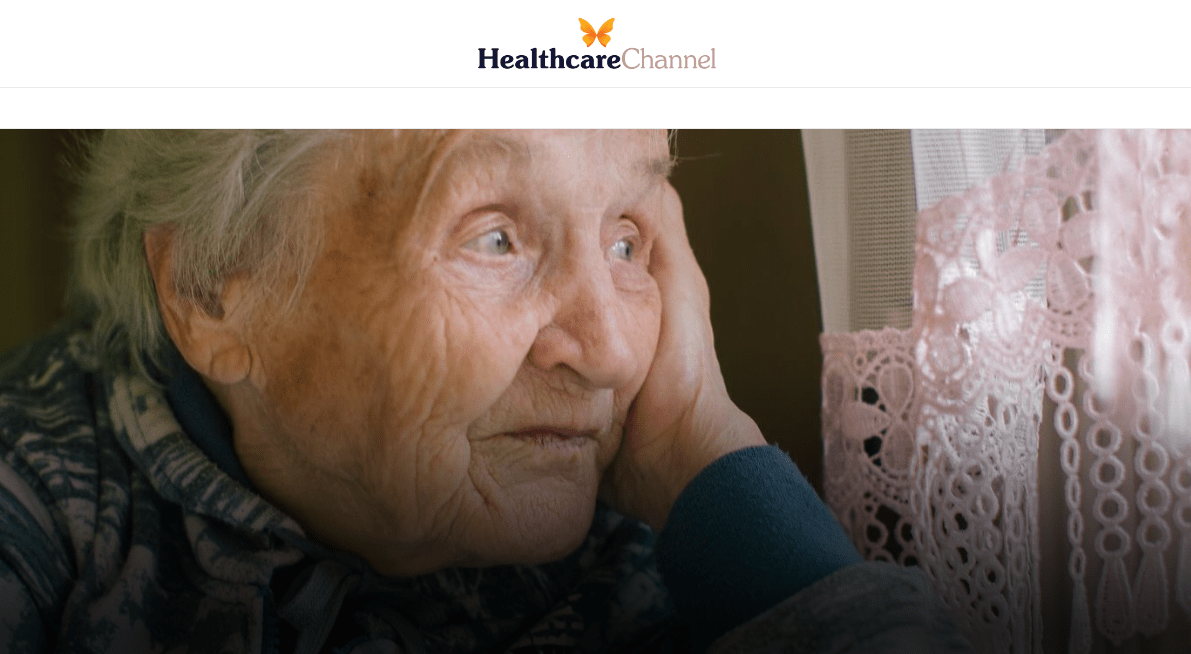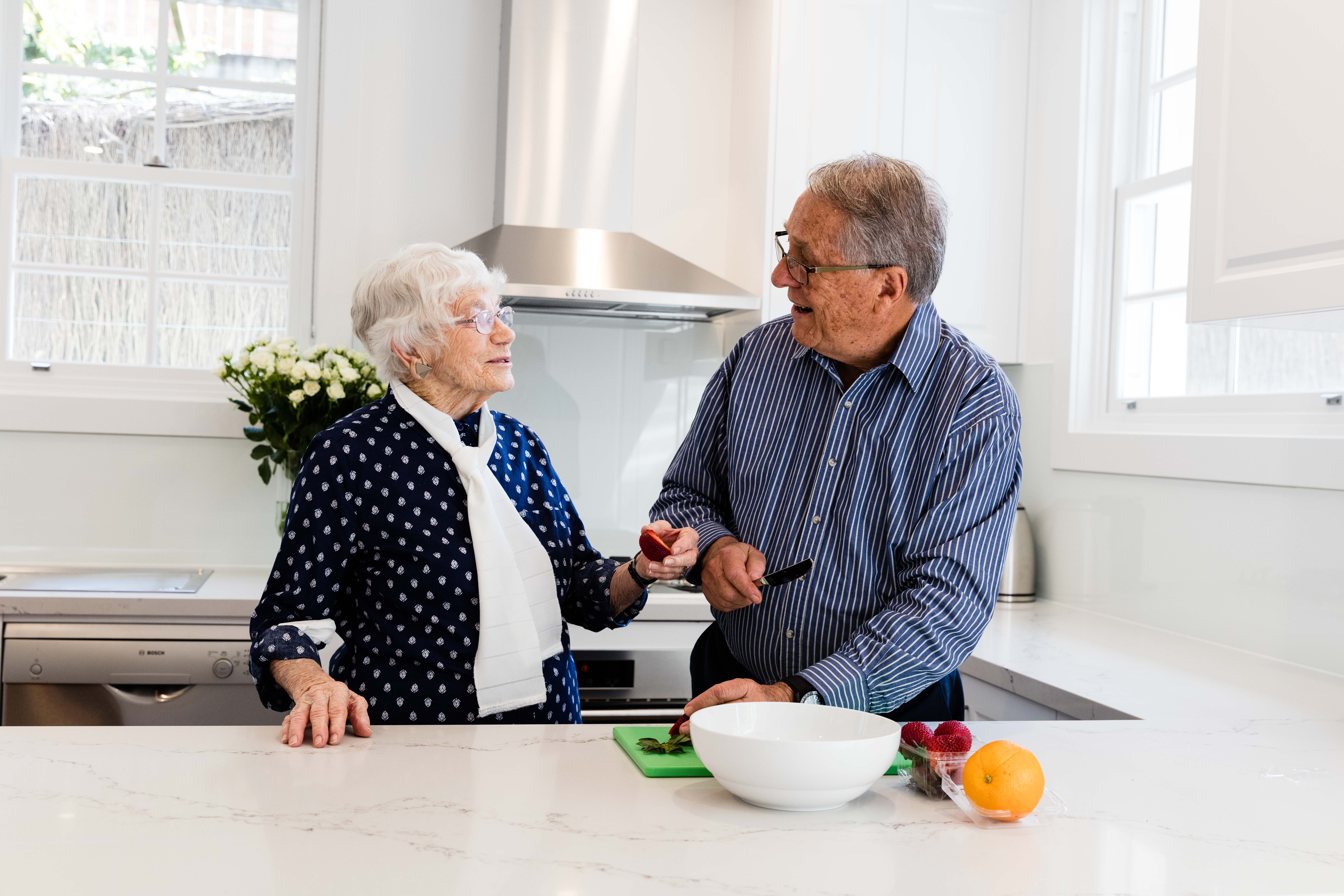The Group Homes Australia (GHA) model is firmly built on the belief that people living with dementia thrive in a home environment.
GHA homes are ordinary homes, on ordinary suburban streets, where 6 to 10 residents live together. Residents have 24-hour care, provided by a team of staff that we call ‘Homemakers’.
The background
In 2012, when GHA was founded, we looked at all the myriad of details of what we wanted our homes to look like and what it would take to support people living with dementia to flourish in our homes and their communities.
When we examined the nursing home industry, many employ carers, support workers, assistants in nursing, and personal care assistants.
To us, it all screamed of tasks! Like toileting, feeding, showering, and tasks that are focused on specific care rather than supporting people to live life and flourish in their own individual way.
Although care tasks may be seen as an essential part of the day in a care environment, if you pause for moment and think to yourself:
Is your day occupied by a shower or going to the toilet?
Or is it focused around the choices you make, the places you go, the people you will interact with and different activities that you find purposeful and meaningful?
We decided to call our teams at Group Homes Australia ‘Homemakers’.
What do our Homemakers do?
Our Homemakers support our residents to engage in life. That can be from the minute a resident wakes up in the morning to supporting any small or large decisions the resident will make throughout the day. Encouraging the residents to be involved in cooking, gardening, shopping, and adapting to day-to-day activities so that our residents living with dementia can focus on what they are able to do, rather than what they can no longer do. The Homemakers’ curiosity and ability to explore how to support residents to flourish is what makes them more than ‘just a carer.’
Of course, ‘care’ is an essential part of what our Homemakers do, but there are many other responsibilities to creating and running a home that encourages connection, meaning and relevance for our residents.
Meals are a central part of a resident’s day. A Homemaker has the opportunity to engage our resident’s in a number of ways around meal times, for example
- helping to create a shopping list
- deciding on what to cook
- choosing a recipe from a cook book
- standing or sitting around the kitchen bench peeling or chopping fresh vegetables
- setting the table together and
- having meals with the residents and encouraging conversation.
Each step of the way, the Homemakers find opportunities for the residents to participate and feel a sense of relevance. As opposed to asking a resident to sit down at a table and serve their meal to them.
The last word
When we started Group Homes Australia, we wanted to offer aged care based on a social model – one where people can live life and flourish, where there’s more to the day-to-day lives of our residents than just task-focused or medical care.
Our Homemakers understand that when taking care of someone living with dementia, it’s not just about the care, its supporting a life to flourish.
If we can assist with answering any further questions, please don’t hesitate to contact our Resident Relations Manager for support on 1300 015 406 or email Group Homes Australia Home Support Office.







0 Comments